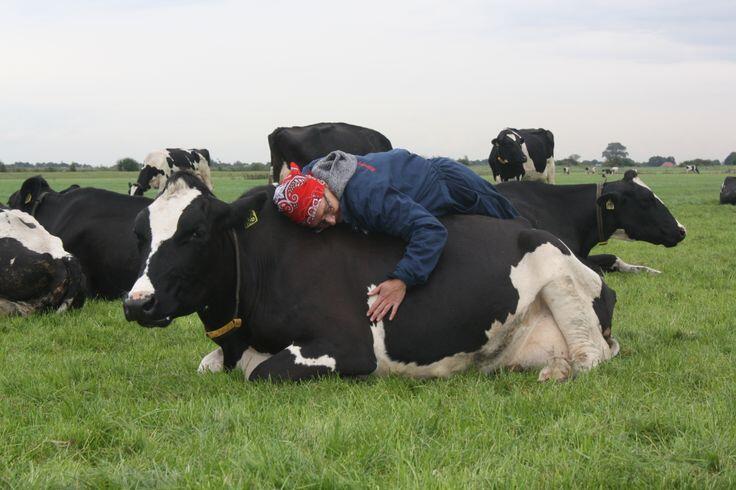The sense of suffering and feeling of pity derived from our perception of pain we apply to animals are subject to the scientific proof that that suffering exists.
Contrary to what happens with animal companion, the concept of ‘animal welfare’ applied to animals whose use involves strong economic interests, as inthe case of animals that serve for our food, has traditionally taken a self – limitation that required from outside, it has been accepted from within: the scientific evidence. We have all recognized the need to ‘prove’ empirically orders of intuition. The subjugation of consciousness science. Consequently, scientific evidence becomes imperative part to defend any animal argument, the mere ethics is invalidated. The sense of suffering, and the feeling of pity, sympathy or respect derived from our perception of the amount of pain that we apply to the use of these animals are subject to the scientific proof that that suffering exists, empirical measurement of their amount in time and space, and practical effectiveness in implementing palliative methods.
The tyranny of the physical world, expressed in mathematical formulas for measuring pain, imposes its limitations on the experience of our moral experience in a project on the rules relating to animals and our behavior in relation to that project. Empirical science occupies only a plot in the set of stimuli and sensitive information, or not, that define our individual integration into a sense of respect for animals whose delimitation and transformation also participate, and with the same tools. Animal protection, integral form of our culture , it acts, and evolves from individual and collective, intuitive or reasoned decisions, which provide us with the movement of a point already passed to the next and where technological erudition does not have a special role and moreover, its value will depend on each personal spirit. Therefore, it is not fair that a plot of current cultural knowledge is imposed, empirical science, as inevitable point of departure for culture may come, and that its definition forces all to grant specific gravity sense for a few.
Man, as a bundle of individual decisions, moves in space, yes, measurable and quantifiable, but also projects in time. We are society, we are movement, derived from the cultural vision of our ancestors and inspired by our intrinsic way of feeling culturally, we defining the culture of our outstanding future. The protection of animals is already an intrinsic part of that evolution, and it is by feeling, intuition, empathy, by attachment or adhesion. It matters little that derives from an attitude ethic , a social feeling or mystical piety or religious origin; or expressed in each of us as emotions, sentimentality, sympathy, compassion, tenderness, passion or fellowship: the way everyone lives their relationship with animals is a matter of each person, but in one way or another , it is in all of us. We can not reduce this internal, personal and transcendent experience to a Cartesian axis at a specific point in physical space, to an aseptic numerical framework, to a solution of cause and effect. Animal protection belongs to our inner nature, it is a feeling that evolves, not a static phenomenon that can be carried into a mechanistic dissection.
In addition, the scaffolding ‘goal’ with which science is coated to justify its inevitable omnipresence in any decision on the protection of animals is a pipe dream or a figment of reduced initiated to handle and master, subjectively, to the great mass group neophytes and thus penalize the results of their empirical formulas. In this false plot it is where the imposition of a scientific basis as the basis of any measure affecting animal welfare animals on our farms fits. This scientific, forced, premise nonobjective nothing but raises new uncertainties: what is the valid scientific basis ?, of a vet ?, an agronomist ?, a biologist ?, an expert in rural economy ?, An expert in waste management ?, another in genetic ?. Even within a specialty there is a coincidence of views. Each researcher of specific and concrete assumptions derived from their own experience and way of understanding their relationship with animals, their personal perception of potential conflicts of interests, which also influence the starting point, also influence priorities and the methodology applied. The conclusions of each scientific discipline or every scientist within a discipline always differ, often inconsistently, and are necessarily subjective.
Finally, the scientific method applied to animal welfare does not usually follow a deductive method, from objective data, extract a logical conclusion, but it raises an inductive system in which, from a preconceived conclusion, delves into the search for a justification science to support it.
We must return to consciousness rightful part in the training process of our ethical culture on the protection of animals without equivocation technical or scientific complex. Being consciousness. For being human.











